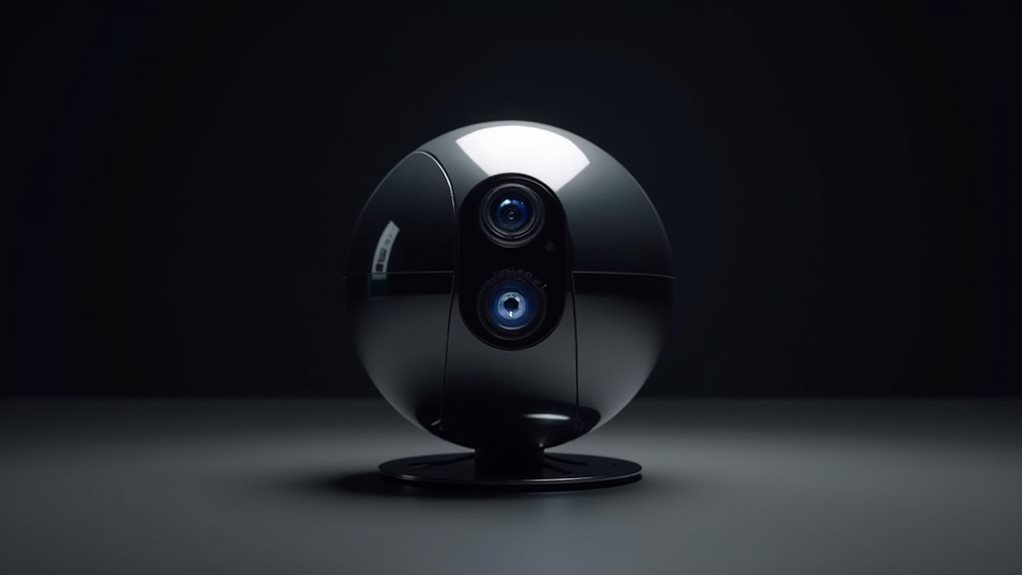World Foundation just landed a whopping $135 million to expand its futuristic bowling ball-like Orb devices that scan people’s eyes to prove they’re human, not AI. The company’s iris-scanning tech, already operating in 16 countries, has verified over 12.5 million World IDs. Their new compact Orb Mini is hitting U.S. cities, processing everything locally for privacy. No saving eyeball data here – just pure human verification. The full story behind this eyeball-scanning empire gets even more interesting.

Every tech startup wants to make sure you’re actually human these days, and World Foundation is betting big on eyeballs to do it. Their chrome sphere Orb devices, which look suspiciously like futuristic bowling balls, are scanning irises across 16 countries to prove users aren’t AI imposters.
And they just scored a massive $135 million boost through token sales to expand their biometric empire.
The tech is surprisingly straightforward. Point your eyes at the Orb, let it scan your iris, and boom – you’re verified as a real human being. No AI can fake its way through this one. The system runs on Nvidia Jetson Xavier NX hardware, doing all the heavy lifting right there on the spot. The device utilizes a sophisticated two-camera setup with wide-angle and telephoto lenses for precise iris capture.
And here’s the kicker: they don’t even keep your iris data. They just make sure you’re unique and send you on your way. The company has already issued over 12.5 million verified World IDs to date.
World Foundation isn’t just stopping at the original Orb. They’ve shrunk it down into the Orb Mini, a compact version that’s already making waves in the U.S. market. When users verify their identity, they get WLD tokens as a reward. It’s like getting paid to prove you’re not a robot – a notable upgrade from clicking pictures of traffic lights.
The company’s expansion plans are aggressive, particularly in major U.S. cities. They’re partnering with financial institutions and pushing what they call “World ID” – a decentralized identity system that could reshape how we prove who we are online.
The whole setup integrates with blockchain technology, which seems to be everywhere these days.
Security is no joke with these devices. They’ve got local anti-spoof detection and real-time processing that makes sure nobody’s trying to pull a fast one with fake irises or AI-generated images.
The system calculates iris codes locally, keeping privacy concerns at bay. For a world increasingly worried about AI impersonation, it’s a bold solution that’s actually working.
No smoke and mirrors here – just straight-up eyeball scanning with a side of blockchain rewards.









